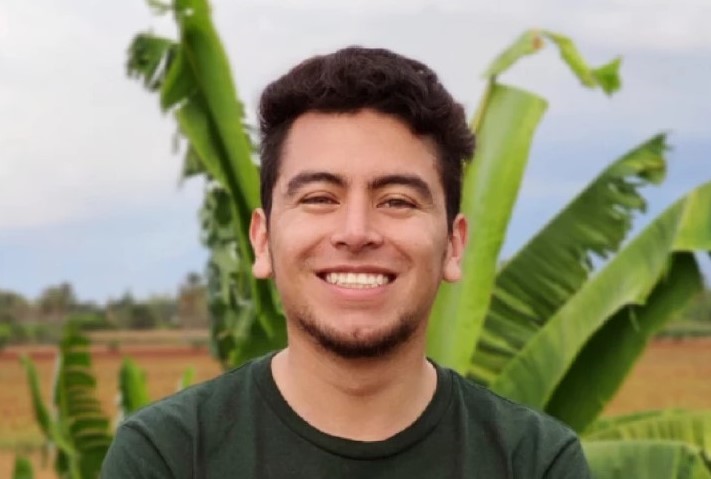Research Student Spotlight December: Johan Pasos Panqueva

- Tags
- spotlight
Our monthly spotlight on the work and lives of the next generation of water@leeds researchers.
This month: Johan Pasos Panqueva
PhD title: Sustainable aquaculture production systems through nutrient recycling from fish farming effluents using duckweed.
School of Civil Engineering
Supervisors: Dr Miller Alonso Camargo Valero, School of Civil Engineering and Professor Alison Baker, School of Molecular and Cellular Biology
Tell us a bit about yourself
I grew up in Colombia, enjoying the advantages of living in a Latin and tropical country. I graduated from the National University of Colombia with a degree in Chemical Engineering and hold an M.Eng from the same university which was focused on the use of microalgae for energy production and water treatment. I’m a very curious person and have always been interested in understanding how nature works, particularly when talking about microorganisms. I believe that through understanding small things, big things can be done.
Why did you choose University of Leeds?
I chose the University of Leeds because of its excellent quality of education and the relevance of the research conducted here worldwide. Apart from that, my supervisor played an important role in my decision. Miller is a good example of the knowledgeable, supportive and industry leading professors at the University. In my context, I got excited about the idea of being part of a network which is working on global water-related challenges. As part of this network I have developed new skills and tools for my career, all thanks to the international and collaborative work which the University has fostered over many years.
What is your research about?
I work within the framework of the UKRI GCRF Water Security Hub, and in my research I aim to characterize the influence of the operational parameters of duckweed-based systems on the remediation of effluents and the production of nutritional biomass in tropical fish farms. A paradigm shift is necessary when talking about wastewater, it should now be considered as a resource instead of a waste. It’s not only because water is important for life, but because of the nutrients contained within each discharge. Through the use of aquatic plants, like duckweed, it is possible to recover and recycle these nutrients while the overall quality of final effluents is restored prior discharge, reducing environmental impacts in the receiving water bodies.
What did you wish you knew before starting a PhD?
The importance of interdisciplinary working to achieved proposed goals. Every problem involves different stakeholders with different needs, in this sense, it is necessary to have an overall view of the big picture to find the better way to solve it. Sometimes what is a solution for you, is not a solution for someone else.
![]() Follow Johan at @JohanPasosP on twitter.
Follow Johan at @JohanPasosP on twitter.
